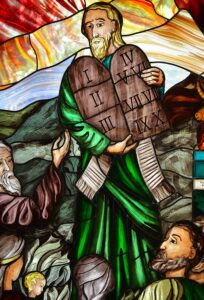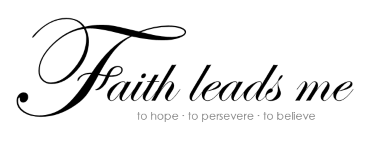A Sermon Based on Matthew 15: 10-28
In preparation for writing a sermon, I typically do a bunch of research. I review not only what is known in minister-speak or pastor-language as exegesis – the critical explanations or interpretations of the scripture – but different sermons that have been preached on whatever topic or topics the scripture seeks to explain or expand upon or teach.

I did that this week and I have to admit my head was spinning a little because of the richness of the lessons in today’s reading from the gospel of Matthew. Even if I owned the world’s largest shoehorn, I wouldn’t be able to pack everything into a reasonable sermon. I say reasonable sermon because I want you to come back to church next week. I don’t want you to think I’m long-winded. I don’t want you to fall asleep – I know how much ice cream we all had at the social last night. And I don’t want you to have your muscles instantly cramp up because you think about sitting in a pew for too long.
Oh, and for those of you who are young enough that your idea of dress shoes is wearing a pair of Crocs – a shoehorn is small device that helps slide the foot into a shoe with a stiff back.
So back to the scripture.
This week’s reading offers us many lessons. I’m going to list them so that you can see why I’m only going to focus on one and why that one is so important.
Before I get into the list, though, I want to talk a little bit about what happens in Chapter 15, immediately before this passage. Jesus and the Pharisees and scribes are engaged in a controversy. Let’s call it a lively discussion about commandments and traditions.
The Pharisees and scribes, who have heard about Jesus – yes, people talked about one another even in Biblical times – came to Jesus in Jerusalem, to question him about why the disciples weren’t washing their hands before eating.
 Jesus responded to their question by saying “And why do you break the commandment of God for the sake of your tradition?”
Jesus responded to their question by saying “And why do you break the commandment of God for the sake of your tradition?”
Jesus also called them – the Pharisees and the scribes – hypocrites because they couldn’t see the forest through the trees. They were so focused on the minutiae – the Jewish tradition of ritual cleansing – that they missed the point entirely. Not only were they failing to keep God’s commandments, but they had made so many man-made rules that it was nearly impossible to follow all of them.
And who says history doesn’t repeat itself?
So, Jesus calls out the Pharisees and scribes and essentially says – Look at what you’ve done! You’ve forgotten God’s commandments, made your own which, by the way are hurting rather than helping you, and you are now trying to tell me how to be righteous. Okay, got it…hypocrites!
So, that’s the context for the list.
Here’s the list of lessons:
Jesus calls a crowd to him, and the crowd is filled with the people who are undesirable in the eyes of the Pharisees and scribes. By undesirable I mean “sinners” – those who are unclean – and those who don’t have the time or energy to check boxes and make sure they keep up with all the traditions created by the religious authorities of the day.
The lesson – Jesus is for everyone, not just those who proclaim they are righteous and holy. It’s not necessary to check all the boxes.
It’s not what someone eats but what someone says that “defiles man”.
The lesson, or I should say lessons, since there are two. First, what we eat differs from what we feel, in our hearts, and then say…and I’ll expand on this in a bit…and second, the interpretation of the scripture is something that is normal. That doesn’t mean that the scriptures will be interpreted as they should, or that those interpretations won’t cause hardships or social injustices, but that different people or groups of people will have different interpretations of scripture and that some of those may contradict God-given laws.
Next, the disciples question anyone that offends – by questioning – the Pharisees. This is an “Oh, my goodness” moment. Can you believe Jesus just said that? Oh no, there will be ramifications for offending the Pharisees! It’s the equivalent in today’s world of saying that because a religious figure said we need to do something, that we must without question. That’s simply not true.
The lesson here is that we can question what we’re being asked to do, especially if what we are being asked to do conflicts with God’s words. Jesus says, “Every plant that my heavenly Father has not planted will be uprooted”. In other words, there are those who have appointed themselves as the ones responsible for being the gatekeepers – the compliance officers – and they will be uprooted when the time comes. They aren’t going to fool God. Jesus then takes this one step further and tells the disciples to leave the Pharisees alone for they are the blind leading the blind.
Then, before shifting gears to the story of the Canaanite woman, the scripture tells us that Jesus said one more thing to the crowd and the disciples. “To eat with unwashed hands does not defile.” As if to underscore what he has previously said, Jesus says to listen up and explains there are certain things that certain people should do – Jewish law, for example, required priests to wash their hands and feet before approaching the altar – but these things don’t apply to average people.
Then things shift a little, not only geographically but also in tone. Jesus is different in this passage. He’s spent time with a big crowd, he’s essentially told the Pharisees and scribes exactly what they could do with their “laws”, and now not only is there a woman crying out to him, but the disciples are begging him to send the woman away.
Clearly, Jesus is stressed and then he says, “I was sent only to the lost sheep of the house of Israel.” This was his way of saying, “I’m busy, I can’t help you”.
I want to stop right there, because what Jesus does next shows what was in his heart, buried beneath the stress, buried beneath the frustration he must have felt. I want to stop right there and back up. Remember when I said earlier that I would talk a bit about how what we eat differs from what’s in our hearts, well, now is the time.
When Jesus was trying to explain things to the Pharisees and scribes, and in doing so to educate the disciples, he said some very interesting things.
Verses 17 and 18:
Do you not see that whatever goes into the mouth enters the stomach and goes out into the sewer? But what comes out of the mouth proceeds from the heart, and this is what defiles.
The first verse is a lesson in basic anatomy. You eat and whatever your body doesn’t use, or store comes out. Okay. Easy enough, right?
The second verse is where Jesus discusses how we know what is in someone’s heart. We know that by their words. Of course, we might also say that we know what is in someone’s heart by their deeds, and that’s true to a certain extent. But in this passage, Jesus is focused on words which have the power to lift up and the power to defile not just us, but those around us. The list of evil intentions is drawn from the ten commandments – murder, theft, false witness – and they have long-lasting effects on our relationships with others.
It’s possible to portray ourselves as one thing when we are something else. I’m sure you’ve seen it at times. I know I have. The person who claims to be a beggar and yet drives a Mercedes. Or the opposite, the person who dresses exceptionally well and seems by outward appearance to have it all, and yet that person is so far in debt they are barely scraping by.
 When it comes to our hearts and our words, what comes out of our mouths really demonstrates who we are. Think of how different we feel and act when we speak words of kindness and forgiveness rather than words of frustration, anger, and hate. Think about the consequences of speaking those words. Does the child who grows up listening to their parents argue see relationships as a place of understanding and acceptance or hurt and trauma?
When it comes to our hearts and our words, what comes out of our mouths really demonstrates who we are. Think of how different we feel and act when we speak words of kindness and forgiveness rather than words of frustration, anger, and hate. Think about the consequences of speaking those words. Does the child who grows up listening to their parents argue see relationships as a place of understanding and acceptance or hurt and trauma?
Contrary to the popular saying that sticks and stones can break bones, but words will never hurt me – words can and do hurt, especially when they come from a heart that isn’t filled with God’s love. And there are many ways that a heart can come to be unfilled.
Remember I stopped when I was talking about what Jesus said to the Canaanite woman, when I said that what Jesus does next shows what was in his heart?
It’s time to pick up there now.
Just after the Canaanite woman, whose daughter was possessed by a demon, said that even the dogs eat the crumbs that fall from their masters table, Jesus said, “Woman, great is your faith! Let it be done for you as you wish!” and with that the woman’s daughter was instantly healed.
Buried beneath the stress, buried beneath the frustration Jesus must have felt with the crowds, the disciples, and even the Canaanite woman, Jesus’s heart shone through his words.
Not only is the woman a breath of fresh air, because she is faith-filled, but this interaction demonstrates that Jesus is for all, not just the lost sheep of Israel.
What’s in your heart? What words do you use to express what’s in your heart?


 Daily Prayer
Daily Prayer
 Jesus responded to their question by saying “And why do you break the commandment of God for the sake of your tradition?”
Jesus responded to their question by saying “And why do you break the commandment of God for the sake of your tradition?” When it comes to our hearts and our words, what comes out of our mouths really demonstrates who we are. Think of how different we feel and act when we speak words of kindness and forgiveness rather than words of frustration, anger, and hate. Think about the consequences of speaking those words. Does the child who grows up listening to their parents argue see relationships as a place of understanding and acceptance or hurt and trauma?
When it comes to our hearts and our words, what comes out of our mouths really demonstrates who we are. Think of how different we feel and act when we speak words of kindness and forgiveness rather than words of frustration, anger, and hate. Think about the consequences of speaking those words. Does the child who grows up listening to their parents argue see relationships as a place of understanding and acceptance or hurt and trauma?